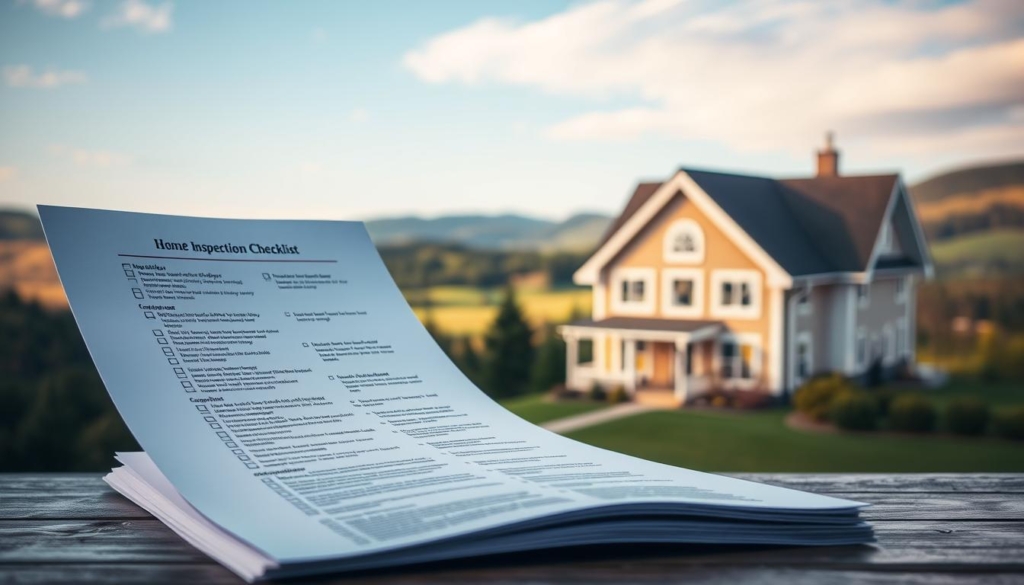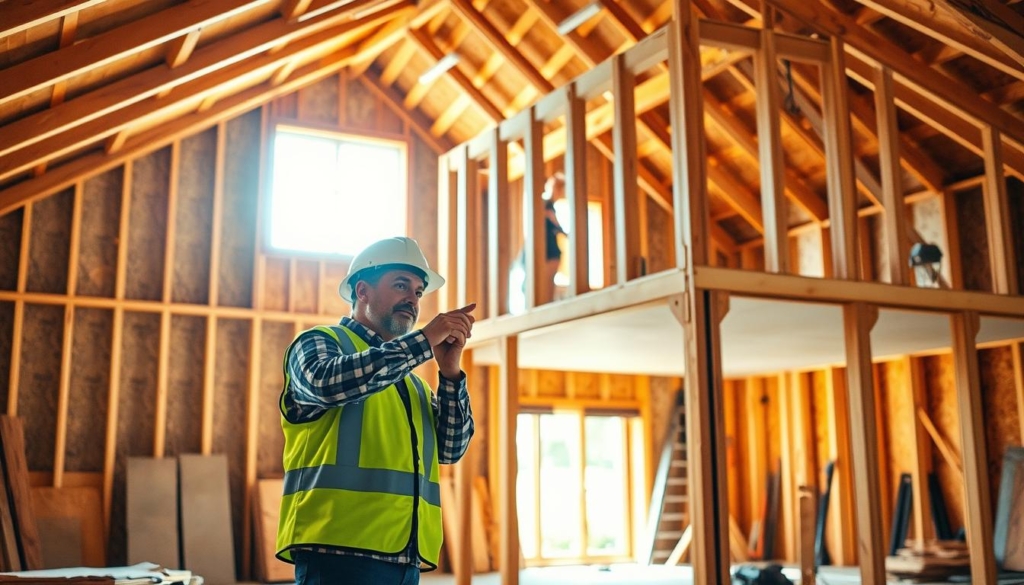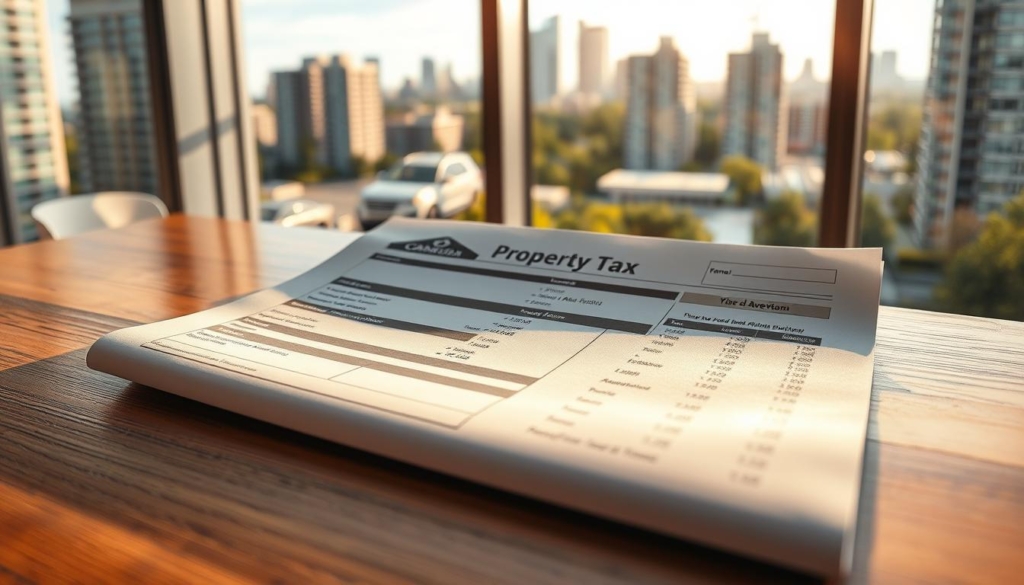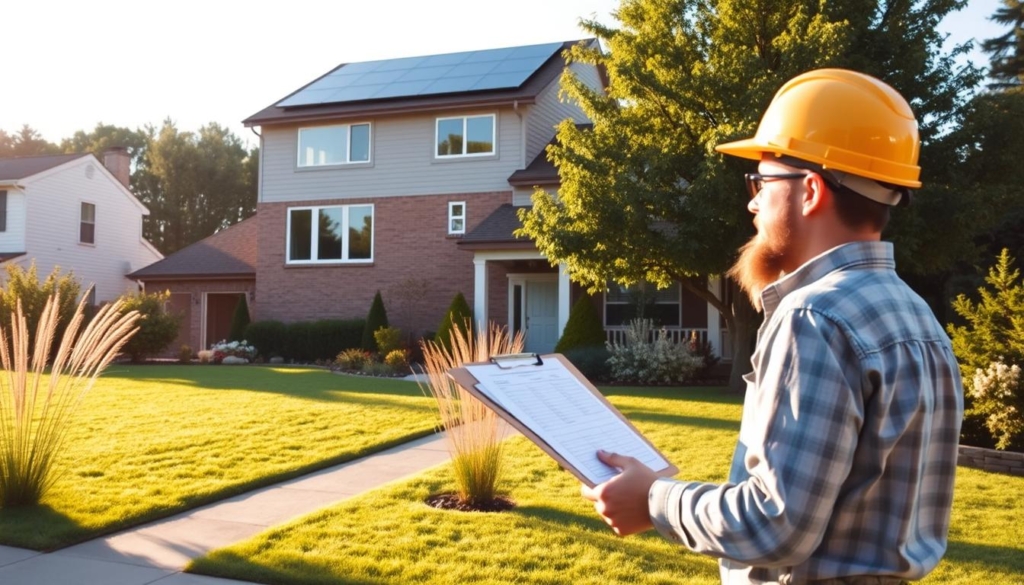Buying a house in Canada needs careful planning. In 2022, nearly 2 million homes were sold. This shows the market is lively and competitive. Knowing what to look for is key for making smart choices.
Looking for a house is more than just finding a pretty place. Buyers must think about market trends, their finances, and the property’s future value. Whether you’re buying your first home or investing in real estate, doing your homework is essential.
New Homes Alberta suggests a detailed approach to buying a home. Buyers should learn about the local market, check property values, and do thorough checks before investing.
Key Takeaways
- Research local real estate market trends thoroughly
- Assess personal financial readiness for home ownership
- Consider long-term investment of properties
- Understand mortgage options and pre-approval processes
- Conduct detailed property inspections
Essential Pre-Purchase Considerations for Canadian Homebuyers

Starting your journey to own a home needs careful planning and preparation. Almost half of Canadians plan to buy a home in the next five years. It’s key to know the financial steps for first-time buyers.
Understanding Your Budget and Financial Readiness
Creating a solid plan for buying a home begins with knowing your budget. Homebuyers should look at their finances closely. They should consider:
- Total household income
- Existing debt obligations
- Credit score health
- Savings for the down payment
Getting Pre-Approved for a Mortgage
Getting pre-approved for a mortgage is a big step. For Canadian buyers, this means:
- Credit check verification
- Reviewing income documents
- Locking in a mortgage rate for 120 days
| Mortgage Type | Minimum Down Payment | Key Requirement |
|---|---|---|
| CMHC-Insured Mortgage | 5% of purchase price | Proof of stable income |
| Conventional Mortgage | 20% of purchase price | Strong credit history |
Setting Realistic Expectations
Buying a home successfully means having balanced expectations. First-time buyers should be ready for challenges. These include closing costs of 2-3% of the price and saving time for a down payment.
Prepare financially, research well, and buy a home with patience and planning.
Square Footage and Property Size Assessment
Understanding square footage is key when looking at properties. In Canada, measuring property size is more than just counting square feet. It involves many complex factors.
Five main factors decide a property’s value:
- Total living area square footage
- Building age
- Location specifics
- Lot size
- Construction quality
Property assessments have specific rules that buyers need to know. Total square footage calculations exclude basement, deck, porch, and garage areas. Assessors use both outside and inside measurements for upper floors. This method gives a full picture.
| Assessment Area | Included Measurements | Excluded Areas |
|---|---|---|
| Living Space | Above-ground heated areas | Basement, garage, deck |
| Lot Calculation | Effective frontage × effective depth | Irregular terrain adjustments |
| Construction Quality | 17 classification levels | Class 6 represents standard construction |
Homebuyers should know that different areas affect property assessments. Urban, rural, waterfront, and condominium markets have their own rules. Urban areas, for example, treat condominiums as their own unique communities.
When looking for house hunting advice, remember that assessing property size is more than just counting square feet. It’s about understanding the space, location, and structure. These factors all play a part in determining a property’s true value.
Analyzing Comparable Home Sales in Your Target Area
Understanding the Canadian real estate market is key. Knowing how to assess property factors is essential for smart home buying. Comparable home sales, or “comps,” offer vital insights into local property values and market trends.
The sales comparison approach (SCA) is a main method for valuing properties. It involves looking at recently sold homes with similar features in the same area.
Understanding Local Market Trends
Real estate markets vary by location, with values changing due to local conditions. Important factors for analyzing trends include:
- Recent sale prices within a 3-6 month period
- Proximity of comparable properties (ideally within 1 mile)
- Similar property characteristics
Price per Square Foot Analysis
Calculating the price per square foot helps compare property values. It’s done by dividing the sale price by the property’s square footage.
| Property Type | Average Price per Sq Ft | Variation Factor |
|---|---|---|
| Suburban Homes | $300-$450 | Location & Condition |
| Urban Condos | $500-$750 | Amenities & Proximity |
Recent Sale Prices in the Neighborhood
Looking at recent neighborhood sales helps understand current market valuations. Real estate agents suggest checking three to five similar properties for a reliable price estimate.
Pro tip: Always consider properties sold within the past three to six months for the most accurate market representation.
By learning these property assessment factors, homebuyers can confidently navigate the complex real estate landscape. They can make well-informed purchasing decisions.
What to Look for When Buying a House: A Complete Checklist

Buying a house needs a careful plan. Knowing what to check can save you a lot of money and avoid future problems.
A good home inspection checklist covers important areas:
- Structural Integrity
- Electrical Systems
- Plumbing Conditions
- Roof and Exterior
- Interior Spaces
Look closely at signs of quality and possible future issues. A professional can spot things you might miss.
| Inspection Area | Critical Checklist Items | Potential Red Flags |
|---|---|---|
| Foundation | Crack assessment | Significant structural shifts |
| Electrical | Circuit breaker functionality | Outdated wiring |
| Plumbing | Pipe condition | Water pressure issues |
Pro tip: Home inspections can uncover issues in approximately 25% of homes, specially in basements and roofing areas.
In Canada, a detailed home inspection is key. With homes costing around CAD 746,000, it’s vital to protect your investment.
Always invest in a professional home inspection to understand the true condition of your future home.
Your home inspection checklist is your guide to making a smart choice. By checking each part of the property, you can negotiate better and avoid expensive repairs later.
Construction Quality and Structural Integrity
Buying a home in Canada means understanding construction quality and structural integrity. A home inspection checklist is key to evaluating a property’s value and safety. It helps identify any structural risks and ensures a good investment.

Quality construction follows strict building standards and codes. Developers focus on making homes strong, durable, and safe.
Foundation and Support Beam Inspection
Checking the foundation and support beams is vital for a home’s structure. Inspectors look at several important things:
- Soil testing results
- Concrete load-bearing capacity
- Foundation stability
- Support beam strength
Plumbing and Electrical Systems
Checking home systems is part of a thorough property evaluation:
| System | Key Inspection Points |
|---|---|
| Plumbing | Leak detection, pipe quality, fixture installation |
| Electrical | Wiring standards, circuit compliance, safety protocols |
Insulation and Energy Efficiency
Modern home inspections focus on energy performance. Proper insulation and design save money and help the environment.
“A well-constructed home is an investment in comfort, safety, and financial stability.” – Canadian Real Estate Association
Spotting construction defects early can save money and ensure safety.
Understanding Property Taxes and Assessment Values

Property taxes are a big deal for Canadian homebuyers. They are a key ongoing cost to think about when buying a home.
In Ontario, the Municipal Property Assessment Corporation (MPAC) handles property assessments. They figure out property values for taxes. The assessment looks at several things:
- Location of the property
- Property size and characteristics
- Recent market values
- Potential renovations or improvements
When buying a home, it’s important to know how property taxes work. The formula is simple: the property’s value times the tax rate. For example, a home valued at $500,000 with a 0.5% tax rate would cost $2,500 a year in taxes.
Taxes help fund important community services. These include:
- Public infrastructure
- Emergency services
- Public schools
- Community programs
Property values can change for many reasons. This includes local development, market changes, and property upgrades. Buyers should check local tax rates and assessment rules before buying.
Understanding property taxes is a critical step in making smart real estate choices.
Utility Costs and Energy Consumption Analysis

Understanding utility costs is key for homebuyers. The energy use of a home affects your finances over time. It’s a major factor to check when buying a home.
In Canada, homes use a lot of energy, mostly for heating. This makes it vital to analyze utility costs when buying a home.
Heating and Cooling Expenses Breakdown
When looking at a home, consider these important energy use factors:
- Insulation quality in attics and walls
- Age and efficiency of heating/cooling systems
- Window and door seal integrity
- Home’s overall energy performance rating
An EnerGuide evaluation gives detailed insights into a home’s energy efficiency. These assessments check:
- Blower door test for air tightness
- Insulation levels in key areas
- Heating and cooling equipment efficiency
- Ventilation system performance
Water and Waste Management Cost Considerations
Don’t forget to look at water and waste management costs. Watch out for old plumbing, inefficient water heaters, or bad drainage. These can cause extra costs later.
Proactive energy assessment can save up to 20% on annual utility expenses.
By carefully looking at utility costs and energy use, you’ll make a better home buying choice. This choice will help protect your financial future.
Legal Considerations and Zoning Laws
Real estate due diligence requires a deep understanding of legal matters and zoning laws. It’s vital to navigate the complex world of property rules in Canada. This knowledge is key for making smart home purchase decisions.
Zoning laws are very important. They decide how you can use your property. These rules help determine what you can do with your land.
- Residential zoning restricts property to housing purposes
- Commercial zoning allows business-related activities
- Agricultural zoning preserves land for farming
In Ontario, cities have detailed zoning bylaws. These bylaws divide areas into different zones for land use. These rules are legally binding and affect property owners a lot.
| Zoning Consideration | Key Details |
|---|---|
| Bylaw Amendment | Possible after a detailed review, with a decision from the municipal council in 90-120 days |
| Public Notice | Must be given at least 20 days before zoning meetings |
| Appeal Process | Can be filed with the Ontario Land Tribunal within 20 days of the bylaw passing |
Homebuyers need to do their homework to know about any limits. Zoning rules can affect home businesses, renovation plans, and property value. Talking to local offices and real estate experts can help understand specific zoning rules.
Important things to think about include:
- Home-based business operations
- Property modifications
- Rental or secondary dwelling possibilities
Knowing these legal details is critical for making good real estate choices. It helps avoid problems in the future.
Home Inspection Process and Requirements
Understanding the home inspection process is key when buying real estate. Professional inspections reveal a property’s true condition. This helps buyers make smart choices and avoid unexpected costs.
In Canada, a home inspection costs about $500 and takes 2 to 4 hours. This small investment can save you thousands by finding hidden problems early.
Selecting a Professional Home Inspector
Choosing the right home inspector is important. Look for these qualities in your checklist:
- Certification from Canadian Association of Home and Property Inspectors (CAHPI)
- Proven experience in residential property assessments
- Comprehensive inspection services
- Detailed reporting capabilities
Critical Inspection Areas
Inspectors check 12 key areas to ensure a home’s quality:
- Structural components
- Roof and exterior conditions
- Electrical systems
- Plumbing infrastructure
- Heating and cooling systems
- Insulation and ventilation
- Foundation stability
- Potential water damage
- Basement and attic conditions
- Bathroom and kitchen fixtures
- Potential environmental hazards
- Safety system functionality
Pro tip: Attend the home inspection in person to ask questions and gain direct insights about the property’s condition.
Home inspections are not required by law but are vital for protecting your investment. It’s wise to include an inspection contingency in your agreement. This lets you back out or renegotiate if issues are found.
Evaluating the Property's Location and Neighborhood

When looking for a house, it’s not just about the building itself. The neighborhood is key to a home’s long-term value and your quality of life. In Canada, smart buyers know that where a house is located is very important.
Looking at a location’s key factors can greatly affect a home’s value and your life there. It’s wise to study the area well before buying.
- Analyze proximity to essential amenities
- Evaluate local school district quality
- Investigate neighborhood crime rates
- Research future development plans
- Check public transportation accessibility
About 60% of Canadian buyers look at neighborhood amenities first. Being close to shops, schools, and parks makes a house more appealing. In cities like Toronto and Vancouver, this can increase a home’s value by 5-10% each year.
| Location Factor | Impact on Property Value |
|---|---|
| Public School District Quality | Up to 15% Value Increase |
| Crime Rate | Significant Negative Correlation |
| Proximity to Amenities | 5-10% Annual Appreciation |
| Future Development Plans | Potential 10% Value Boost |
Think about the neighborhood’s economic health and growth chances. Areas with planned improvements can be great investments. About 40% of Canadians want homes near nature, showing a shift in what they look for in a location.
Remember: A home’s value is tied to its location. So, it’s vital to research the neighborhood well.
Assessing Natural Hazard Risks and Flood Zones
When looking at properties, it’s key to check for natural hazard risks, like flood zones. Canadian buyers need to know the risks of homes in flood-prone areas.
Flood risks are big warning signs for buyers. The Insurance Bureau of Canada says about one million homes could flood in the next 20 years.
Understanding Flood Zone Classifications
Flood zones are divided based on how likely water can reach them:
- 0-20 Year Flood Zone: 5% chance of flooding each year (high-risk)
- 20-100 Year Flood Zone: 1% chance of flooding each year (low-risk)
Insurance and Financial Implications
“Knowing about flood risks can save homeowners thousands in insurance and damage costs.”
Buying a home in a flood zone can cost more:
- Insurance costs go up
- Lenders might be stricter
- The home’s value could drop
By February 2024, big banks like Desjardins have made lending harder for flood-risk areas. Buyers might need big down payments and to show they can protect against floods.
It’s smart to use tools like the Géo-Inondations app and check local maps to understand the risks of a property.
Analyzing Property History and Market Time

Real estate due diligence means looking closely at a property’s market history. Knowing how long a home has been on the market can tell us a lot. It shows us its value and how desirable it is.
The Days on Market (DOM) metric is very important for home buyers. It shows interesting trends:
- Homes selling within five days have a 57% chance of selling at listing price
- Selling probability drops to 50% in subsequent weeks
- After extended market time, sale probability decreases to 39%
When homes stay on the market too long, it’s a warning sign. It might mean the home is overpriced or has problems. It could also be in a bad location or have other issues.
- Overpricing compared to neighborhood standards
- Structural or cosmetic problems
- Undesirable location characteristics
- Challenging property conditions
Buyers should find out why a home hasn’t sold yet. They need to look at past sales, understand the local market, and talk to real estate experts.
Knowledge is power in real estate transactions – understanding a property’s history can prevent costly mistakes.
Smart buyers use market data to make good choices. They turn possible problems into chances to negotiate a better deal.
Key Takeaways for First-Time Homebuyers in Canada
Buying a house in Canada needs careful planning and strategy. This guide has covered the key points for first-time buyers. With homes in Canada going up 5-7% each year, knowing the market well is essential.
Getting your first home requires a lot of research and smart choices. About 80% of first-time buyers worry about rising interest rates. This shows how important being financially ready is. By using the tips given, you can feel more confident in your home buying journey.
At New Homes Alberta, we help buyers with expert advice. Our team is here to guide you through the Canadian housing market. For personal help, call our experts at (403) 305-9167. They can offer advice tailored to your needs.
Buying a home is a big step towards your future. With the right planning, support, and strategy, you can make your dream of owning a home come true.





